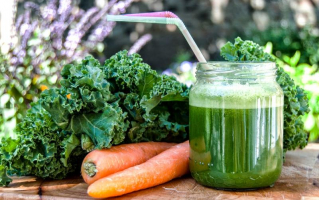Top 6 Health Benefits of Red Raspberries
Raspberries are the edible fruit of a rose plant species. There are several other sorts of raspberries, including black, purple, and golden raspberries, but ... read more...the most common is the red raspberry, or Rubus idaeus. Red raspberries are native to Europe and northern Asia and are grown in temperate climates around the world. The majority of raspberries farmed in the United States are grown in California, Washington, and Oregon. These sweet, tart berries have a short shelf life and are only available in the summer and fall. For these reasons, raspberries are best eaten shortly after purchasing. The health advantages of raspberries are discussed in this article.
-
Raspberries boast many nutrients despite being low in calories. One cup (123 grams) of red raspberries contains:
- Calories: 64
- Carbs: 14.7 grams
- Fiber: 8 grams
- Protein: 1.5 grams
- Fat: 0.8 grams
- Vitamin C: 54% of the Reference Daily Intake (RDI)
- Manganese: 41% of the RDI
- Vitamin K: 12% of the RDI
- Vitamin E: 5% of the RDI
- B vitamins: 4–6% of the RDI
- Iron: 5% of the RDI
- Magnesium: 7% of the RDI
- Phosphorus: 4% of the RDI
- Potassium: 5% of the RDI
- Copper: 6% of the RDI
Raspberries contain 8 grams of fiber per 1-cup (123-gram) serving, or 32% and 21% of the RDI for women and men, respectively. They supply more than half of the RDI for vitamin C, a water-soluble component required for immunological function and iron absorption. Raspberries are also high in vitamin A, thiamine, riboflavin, vitamin B6, calcium, and zinc.
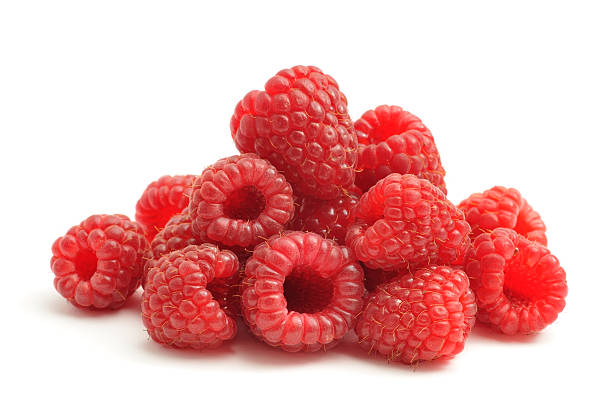
Low-Calorie and Packed With Nutrients 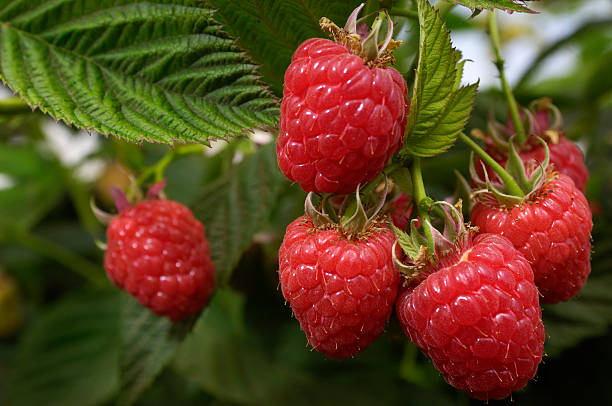
Low-Calorie and Packed With Nutrients -
Antioxidants are plant chemicals that aid in the fight against and recovery from oxidative stress. Oxidative stress has been related to an increased risk of cancer, diabetes, heart disease, and other diseases. Raspberries are high in antioxidant components such as vitamin C, quercetin, and ellagic acid. Raspberries have a similar antioxidant content to strawberries, but only half that of blackberries and a fifth of that of blueberries.
According to animal research, raspberries and raspberry extracts have anti-inflammatory and antioxidative properties that may lower the risk of chronic diseases like heart disease, diabetes, obesity, and cancer. In an eight-week trial of obese, diabetic mice, those fed freeze-dried red raspberry exhibited less inflammation and oxidative stress than the control group. Another study in mice discovered that ellagic acid, an antioxidant present in raspberries, may not only prevent oxidative damage but also repair damaged DNA.
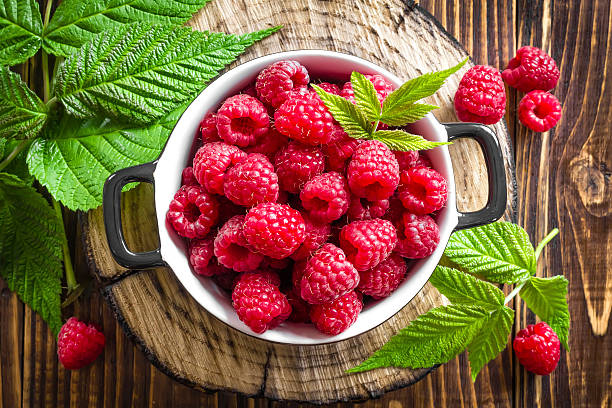
May Reduce Disease Risk 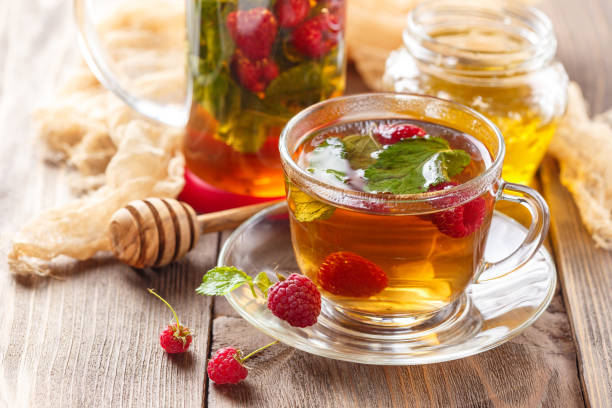
May Reduce Disease Risk -
Raspberries are strong in fiber and low in carbs, making them an excellent choice for anyone watching their carb intake. One cup (123 g) of raspberries contains 14.7 g of carbohydrates and 8 g of fiber, for a total of 6.7 g of net digestible carbs per serving. Raspberries are also unlikely to cause blood sugar spikes. The glycemic index (GI) measures how rapidly a food raises your blood sugar. Though the GI of raspberries has not been measured, most berries are low-glycemic.
Furthermore, research suggests that raspberries may reduce blood sugar and improve insulin resistance. Mice fed freeze-dried red raspberries alongside a high-fat diet exhibited lower blood sugar levels and reduced insulin resistance than the control group in animal experiments. Raspberry-fed mice also had lower levels of fatty liver disease. Furthermore, raspberries are strong in tannins, which inhibit alpha-amylase, a digestive enzyme required for starch breakdown. Raspberries may limit the number of carbs absorbed after a meal by inhibiting alpha-amylase, lowering the influence on blood sugar.
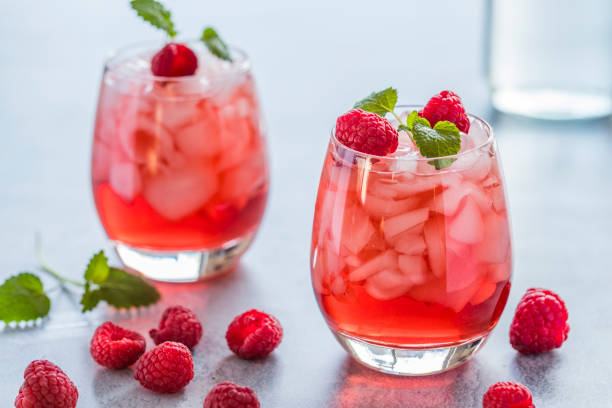
May Benefit Blood Sugar Control 
May Benefit Blood Sugar Control -
The strong antioxidant content of raspberries may protect against cancer. In test-tube experiments on colon, prostate, breast, and oral (mouth) cancer cells, berry extracts, particularly red raspberries, inhibited and destroyed cancer cell growth. Red raspberry extract was demonstrated to destroy up to 90% of stomach, colon, and breast cancer cells in one test-tube investigation.
Another study in test tubes found that sanguiin H-6, an antioxidant contained in red raspberries, caused cell death in more than 40% of ovarian cancer cells. Animal experiments with raspberries show that they have cancer-fighting properties. In a 10-week study of mice with colitis, those fed a 5% red raspberryberry diet had reduced inflammation and a decreased risk of cancer than the control group. Another study found that red raspberry extract inhibited the formation of liver tumors in mice. Larger doses of raspberry extract reduced the likelihood of tumor growth. Before raspberries can be conclusively connected to cancer prevention or therapy, human trials are required.
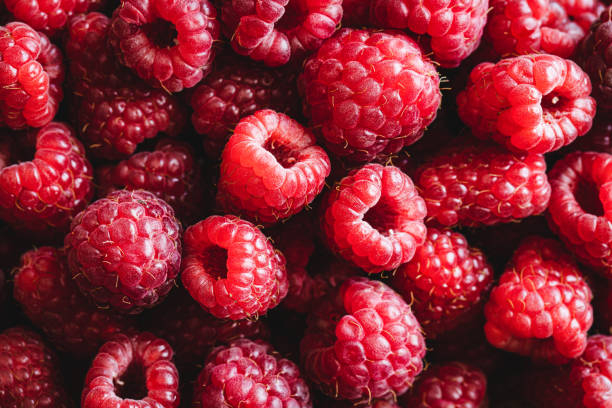
May Have Cancer-Fighting Properties 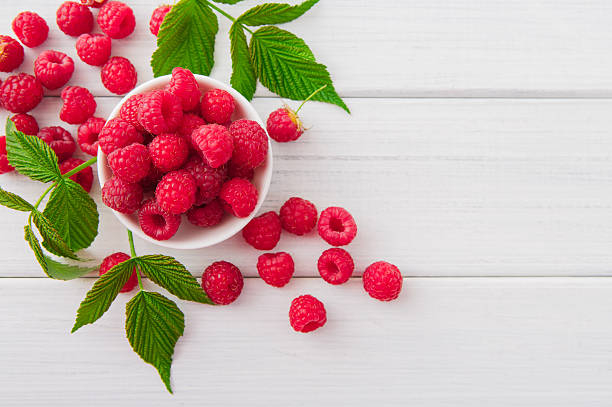
May Have Cancer-Fighting Properties -
One cup of raspberries (123 grams) contains only 64 calories and 8 grams of fiber. Furthermore, it is composed of more than 85% water. As a result, raspberries are a satisfying, low-calorie food. Furthermore, their natural sweetness may aid in satisfying your sweet taste. Raspberries' inherent chemical compounds may also aid with weight loss. Mice were fed a low-fat diet, a high-fat diet, or a high-fat diet supplemented with one of eight berries, including raspberries, in one study. Raspberry-fed mice acquired less weight than mice fed simply a high-fat diet.
Raspberry ketone pills for weight loss are frequently marketed. However, there has been little research on them. Mice fed a high-fat diet and given high dosages of raspberry ketones acquired less weight than mice in the control group in one research. The single human-based trial on raspberry ketones for weight loss employed a supplement that also included caffeine, making it impossible to tell whether raspberry ketones were responsible for any good benefits. While there is little proof that raspberry ketone pills help with weight loss, eating whole, fresh raspberries may.
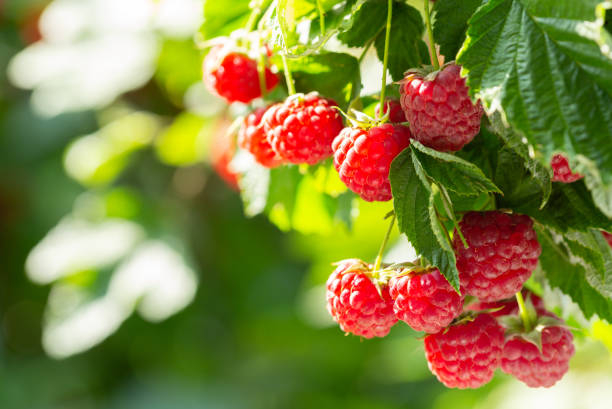
May Aid Weight Loss 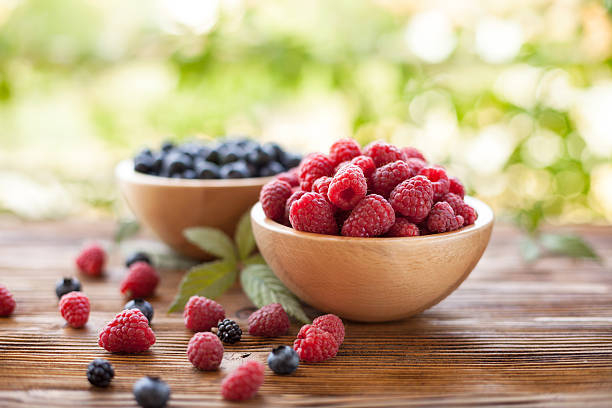
May Aid Weight Loss -
Raspberries are abundant in antioxidants, which can help lessen the signs of aging in your body by combating free radicals. Antioxidants have been related to extended lifespans in animal models and have anti-aging properties in humans. Raspberries are also abundant in vitamin C, which is essential for maintaining healthy skin. It may boost collagen formation and reverse UV-induced skin damage. In one eight-week trial, aging rats fed a diet containing 1% or 2% raspberries increased their motor abilities, such as balance and strength.
Raspberries offer anti-inflammatory qualities that may help with arthritic symptoms. In one study, rats given red raspberry extract had a decreased risk of arthritis than rats given a placebo. Furthermore, those who got arthritis had fewer severe symptoms than the control rats. In a separate study, rats given raspberry extract experienced less edema and joint damage than the control group. Raspberries are thought to protect against arthritis by inhibiting COX-2, an enzyme that causes inflammation and pain.
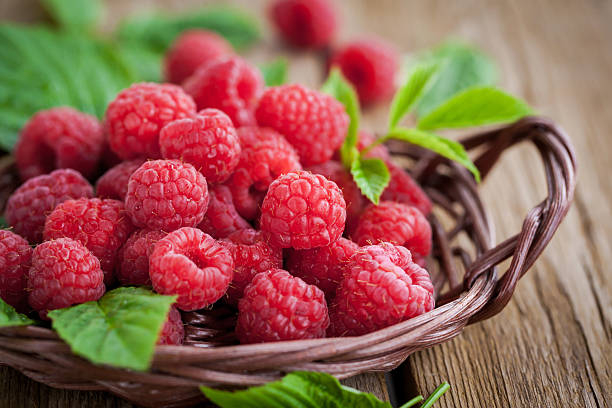
May Combat Aging 
May Combat Aging





















